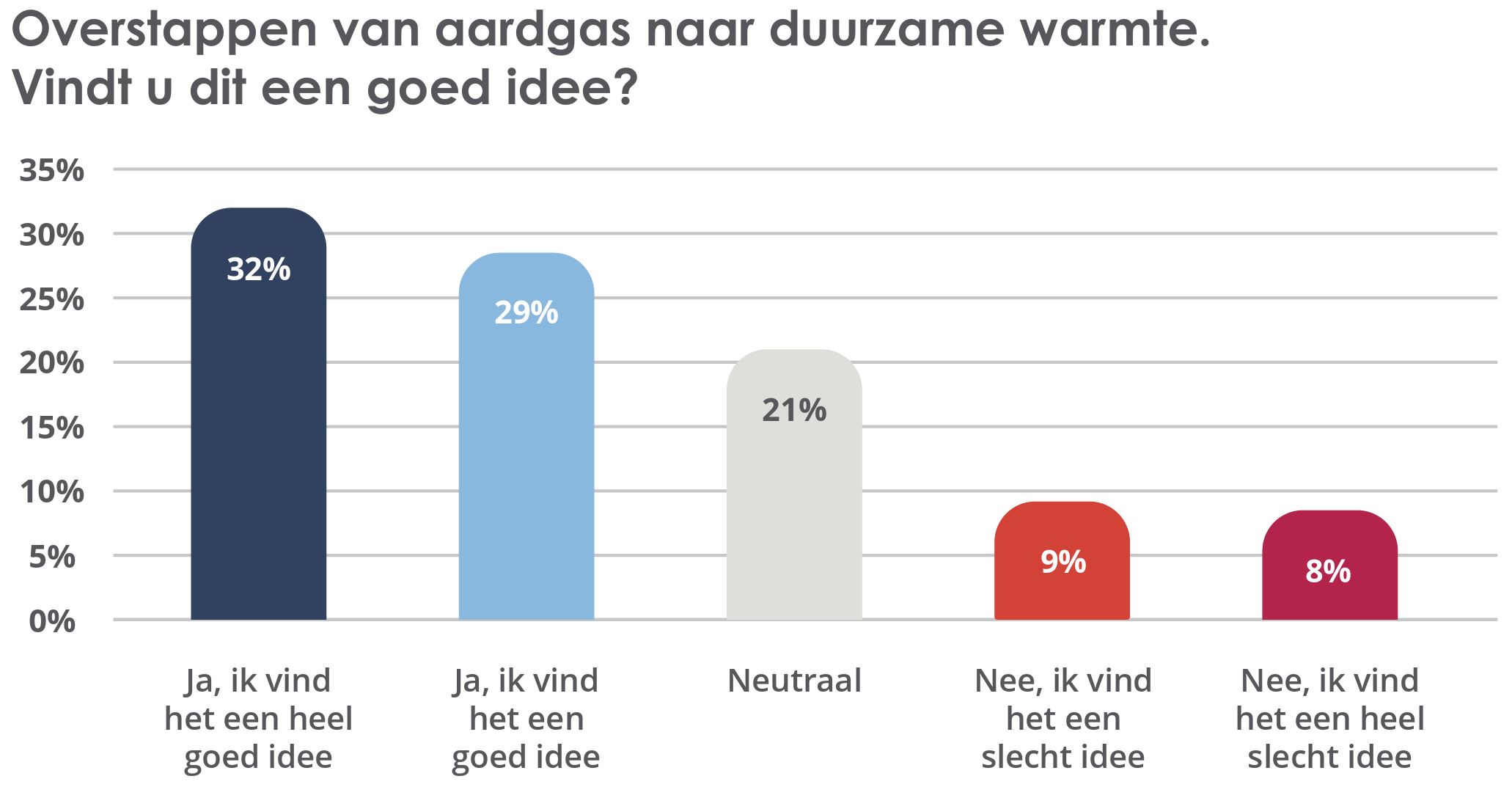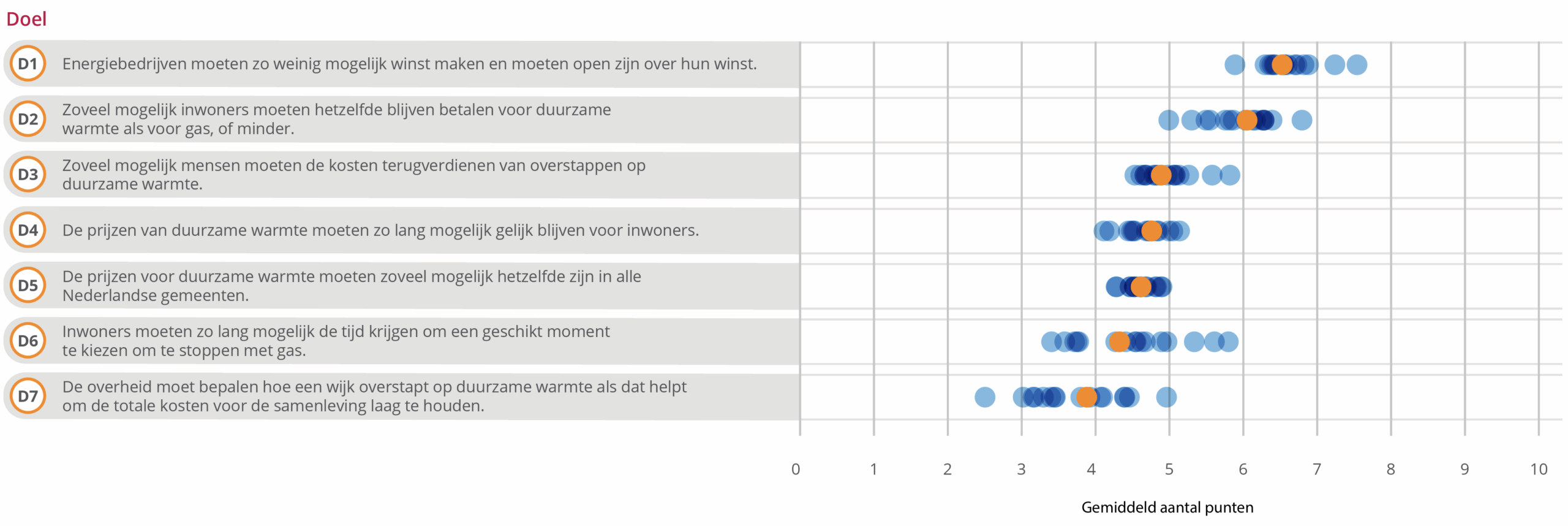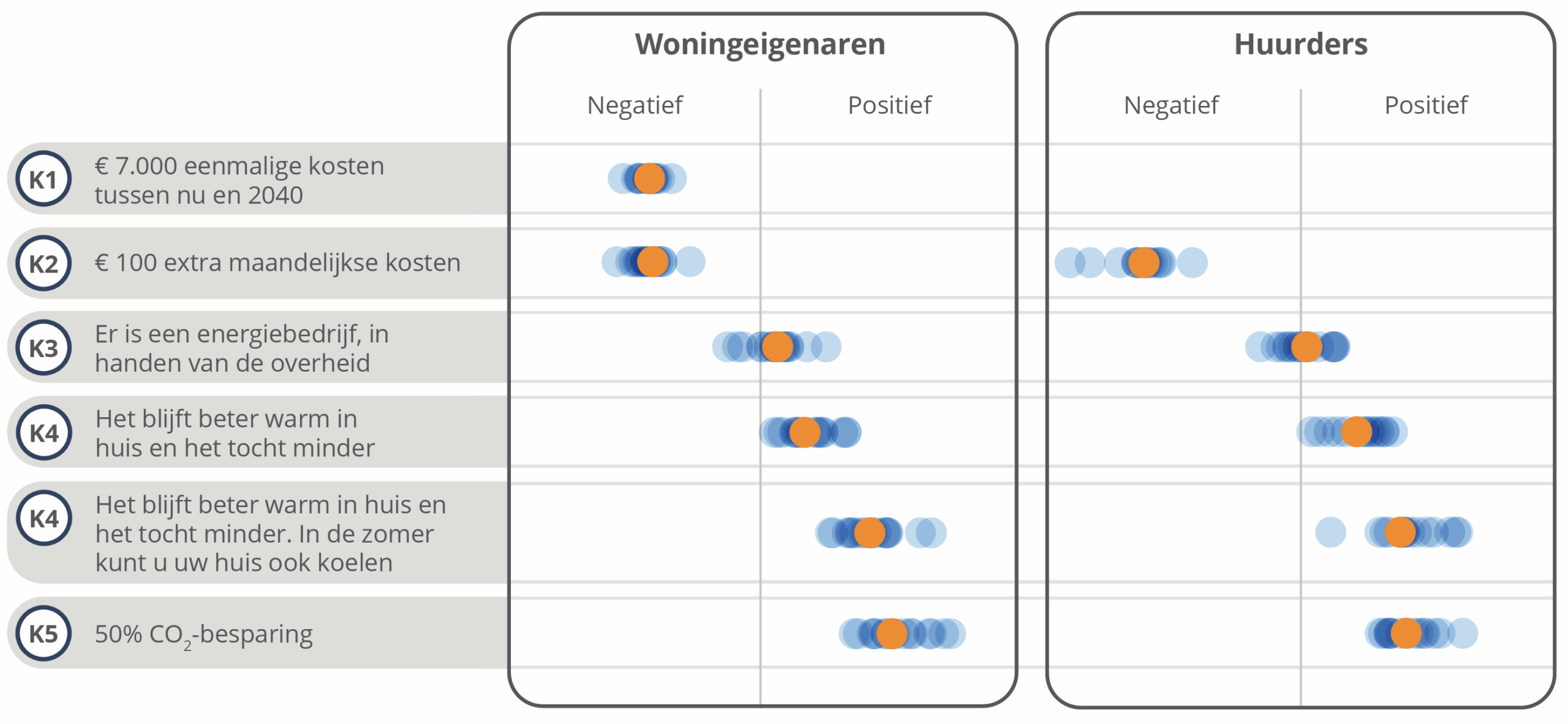Unique research: support for transition to sustainable heating

There is support for sustainable heating. Of the participants, 61% think switching from natural gas to sustainable heating is a (very) good idea, compared to 17% who think it is a (very) bad idea.

Click on the image to enlarge it – Participants were asked to indicate whether they thought switching to sustainable heating was a good idea or not. Respondents who responded negatively were explicitly asked to complete the rest of the survey anyway.
The research shows that, regarding the affordability of sustainable heating, Dutch people consider it important that energy companies minimize profits and are transparent about their revenues and costs. They even seem to consider this a fundamental principle in implementing policies related to the heat transition.

Click on the image to enlarge – In the Participatory Value Evaluation that was part of the study, participants allocated 35 points across seven possible priorities related to affordable heating. The orange dot represents the national average, while the blue dots show the average results per participating municipality.
While residents would prefer not to pay more for sustainable heating than for natural gas, a majority indicate the government should choose an approach that costs citizens more—provided it helps reduce CO₂ and makes living more comfortable. Support for such an approach could even reach 80% or more of the Dutch population if the cost of sustainable heating were equal to or lower than that of natural gas.

Click on the image to enlarge – During the Discrete Choice Experiment, which was part of the study, participants responded to various characteristics of potential policies for the transition to sustainable heating between now and 2040. The graph shows dots: the further a dot is to the right, the more positive the influence of this characteristic on the policies participants recommend. The orange dot represents the national average, while the blue dots show how people in different municipalities feel about this.
Of the participants, 80% appear to be concerned about the climate. This group is more likely to believe that the government should be able to determine how a neighborhood transitions to sustainable heating and has a slight preference for a publicly owned energy company. Of the respondents, 18% indicate they have no concerns about the climate. This group values the freedom to decide for themselves how to transition to sustainable heating and also wants ample time to do so.
Affordable heat is more than just a calculationAccording to Herman Exalto, Project Director of National Heat Participation at EBN, the study offers valuable insights for initiating local discussions about the transition to sustainable heat: “The heat transition is a societal change with significant social impact. This requires sound policy based on accurate figures and insights. That's why this study asked people what municipal policy they would recommend to the government. The results confirm what we often hear in practice: affordable heat isn't just about money, but also about comfort and trust. This is an important signal, because if we want people to move with us, we first need to understand what they expect from their government.”
* The survey provides insight into how residents, as citizens, think about long-term policies. Participants were explicitly asked to respond from that perspective, rather than from the perspective of consumers/end-users. It's quite possible that, as consumers (from a short-term perspective), they might make different choices for their own wallets.

The study was conducted by Populytics and MSG Sustainable Strategies on behalf of seventeen municipalities in collaboration with EBN (Energie Beheer Nederland). A total of 14,657 residents from sixteen municipalities participated. The results from the seventeenth municipality were not available in time for inclusion in the national report. The municipalities themselves invited their residents to participate by letter.
The large number of participants allows for representative conclusions to be drawn from the data about citizens' priorities for municipal policies regarding the transition to sustainable heating and its characteristics. By using and combining two innovative research methods for the first time—Participatory Value Evaluation and the Discrete Choice Experiment—the national report offers in-depth insight into how citizens assess the affordability of sustainable heating and the considerations they make. In addition to the national report, a report outlining the municipal results has been compiled for each of the seventeen municipalities.
Citizen-consumer paradoxParticipants in the study were asked to contribute their own perspectives on policy regarding the heat transition. The results provide policymakers with valuable insights into what residents consider important and which local approaches are promising. At the same time, other research shows that people sometimes make different choices as consumers than as citizens. This difference in perspective is known as the "citizen-consumer paradox": what people consider socially desirable does not always align with what they personally accept or do.
ebn





